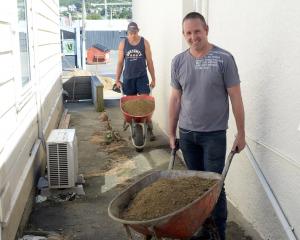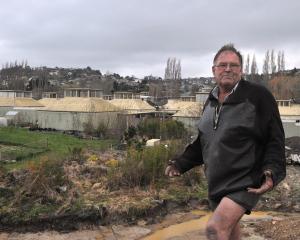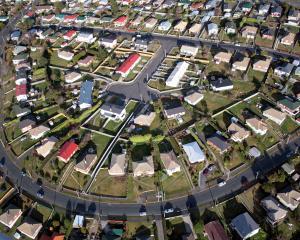Much has been made of the need to address the property investment tax regime. But the Government must tread carefully, warns Peter Lyons.
A recent article by Andrew King, of the New Zealand Property Investors' Association, criticised Government proposals to change the tax treatment of rental investments.
Mr King's argument was that rental investments are treated similarly to shares and businesses under the present tax regime.
Although I disagree with Mr King on some of the points in his argument, he is largely correct.
Over the past decade, I have written numerous articles lamenting our obsession with investing in rentals.
I find it ironic that as the Government appears likely to change the tax treatment of rentals, I am in agreement with Mr King.
Such a move may not be particularly wise or fair at this point in time.
There seems to be a lack of appreciation of the forces that have shaped our current economic position and the fragility of the anaemic recovery we are experiencing.
These tax changes could shatter any recovery.
The name Hyman Minsky means little to most New Zealanders. His views have become very topical, particularly in the United States.
Mr Minsky was a little-known economics professor at Washington University.
He believed free-market capitalism was inherently unstable, being susceptible to frequent asset bubbles and collapses.
He laid the blame on the actions of bankers and other financiers.
Their shoddy lending practices during boom times were followed by panic and credit restrictions during downturns.
The unleashing and subsequent restricting of credit magnified the periodic ups and downs experienced by capitalist economies.
Mr Minsky's ideas became known as the "financial instability hypothesis".
His views are now frequently quoted in the financial press in the United States.
The darkest days of the recent credit crunch is sometimes referred to as "a Minsky moment".
Mr Minsky's theory flies in the face of the free-market orthodoxy that has prevailed in New Zealand in recent decades.
The free-market mantra states that people are rational decision-makers.
If they wish to invest in rental properties, this is because it is the most rational decision for them based on sound cost-benefit analysis.
Banks and other lenders are also rational decision-makers. If they are willing to lend to someone to buy a house, it must be for sound economic reasons.
Markets are efficient and the outcome should be best for society provided people are left to follow their own self interest. This is how it is taught in Economics 101.
The free-market theory takes no account of herd behaviour and situations of "rational irrationality".
It fails to explain people taking out massive mortgages to buy over-priced houses for fear of missing out on the spectacular gains that others around them appear to have made.
It doesn't allow for bankers and other lenders extending credit to high-risk customers for fear of missing out on commissions, profits and market share.
Mr Minsky's hypothesis provides almost a perfect fit to the New Zealand economy in recent years.
In 2003, a spike in immigration led to a sharp rise in house prices. This encouraged our banking sector to become more aggressive in its lending.
The easy access to mortgage finance resulted in a turbo-charged housing market. This allowed the banks to ramp up their lending because the value of the collateral was rising.
As house prices soared, people felt wealthier and increased their spending, leading to full employment and several years of strong economic growth. This virtuous process came to an abrupt halt after the outbreak of the subprime mortgage crisis in the US in 2007.
The illusion of prosperity became very apparent.
Why are Mr Minsky's ideas relevant to the tax treatment of rentals in New Zealand? Because if he was correct, then an abrupt change in the tax treatment of rentals could lead to a collapse in house prices in New Zealand. This would quickly push us back into recession.
New Zealand is unlikely to experience a renewed property boom for many years.
Banks are running scared in their lending, as Mr Minsky predicted happens after a crash.
House prices are now way out of kilter with average incomes.
People are also concerned about rising unemployment and are hesitant to take on more debt.
The only factors that have helped prop up the housing market in the past two years have been low interest rates and net migration figures.
The Government needs to be very careful in changing the tax treatment of property.
The good times prior to 2007 illustrated how fundamental house prices are to the macroeconomic stability of our economy.
A slow unravelling of the property bubble would be preferable to a sudden slump created by poor policy initiatives.
- Peter Lyons teaches economics in Auckland and has written several economic texts. He invests in shares and owns no property.




